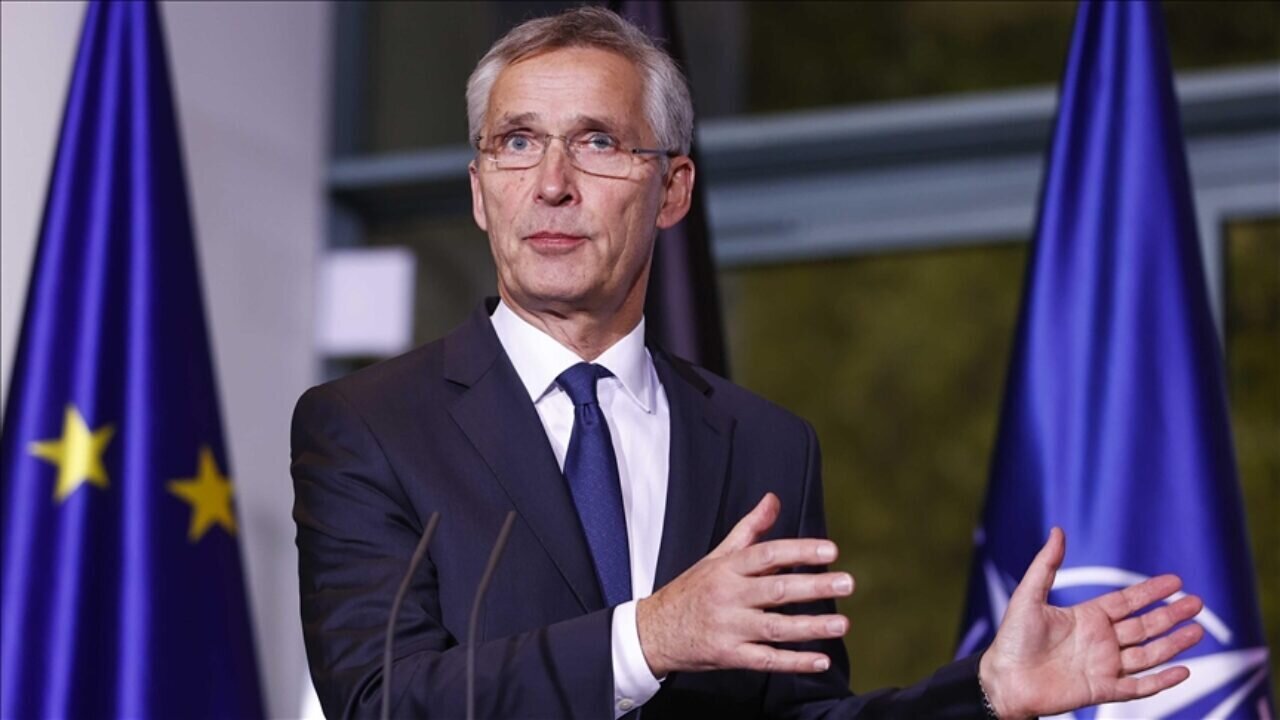NATO Secretary General Jens Stoltenberg on Thursday pledged continued support to Ukraine, but also pointed out that the alliance will remain cautious to avoid a wider war with Russia.
“NATO is not party to the conflict. We will not be dragged into Putin's war,” Stoltenberg said at a joint news conference with German Chancellor Olaf Scholz, after their meeting in Berlin.
The NATO secretary general accused Russian President Vladimir Putin of deliberately bombing Ukraine’s civilian and energy infrastructure to freeze and starve the Ukrainians into submission.
“Putin is using winter as a weapon. And we cannot allow him to win. At this critical moment, our continued support for Ukraine is more important than ever,” he added.
Stoltenberg thanked the German government for its financial and military support for Ukraine.
“Germany is among the allies providing most military, financial and humanitarian aid to Ukraine. Military equipment provided by Germany protects Ukrainian homes, schools and hospitals from Russian missile attacks,” he said.
New NATO initiative
Stoltenberg noted that, during their meeting with Scholz, they discussed Germany and Norway’s proposal to set up a center to protect critical undersea infrastructure, such as cables and pipelines on the seabed.
“The recent sabotage of the North Stream pipelines has reminded us all of the vulnerabilities of this infrastructure,” he said, adding that since then, NATO has doubled the number of ships patrolling the North and the Baltic seas.
“But we need to do more, to help protect this vital infrastructure. So, I welcome the German-Norwegian initiative to establish a NATO Undersea Infrastructure Centre,” Stoltenberg said.
“Such a center would provide allies with better situational awareness, map our vulnerabilities. And help deter and recover from any disruptive actions against Allied undersea infrastructure,” he added.
Patriots for Poland
Scholz reiterated that Germany will continue its efforts to support Ukraine and will also increase its contributions to the NATO alliance.
“The fact that Putin's Russia is trying to change borders in Europe through military force, once again reminds us how important the transatlantic alliance is,” Scholz said.
“NATO alliance remains the central guarantor of our collective security,” he stressed.
The Social Democrat chancellor underlined that the German armed forces will continue its deployments to beef up NATO’s eastern flank, will provide jets for patrols over the Baltic region, and continue operating Patriot air defense systems in Slovakia.
Asked about Germany’s offer to deploy Patriot systems in Poland, Scholz told reporters that discussions were ongoing on this matter.
“Our offer to Poland continues as stated. We’re willing and ready to provide safety and security to Poland, and deploy a Patriot system there. The discussions are ongoing,” he said.
Germany had offered to send Patriot missile defense system to Poland last month, after a stray rocket crashed in the eastern part of the country, bordering Ukraine.
But Warsaw called on Berlin to deliver the Patriot air defense systems to Ukraine, to protect both Ukrainian and Polish airspace.
German authorities declined this proposal, stressing that those defense systems were intended for use on NATO territory.
Earlier, former Russian President Dmitry Medvedev had warned that if Patriot systems and NATO personnel would be deployed in Ukraine, they will be “legitimate targets” for Russian troops.
Source: AA









